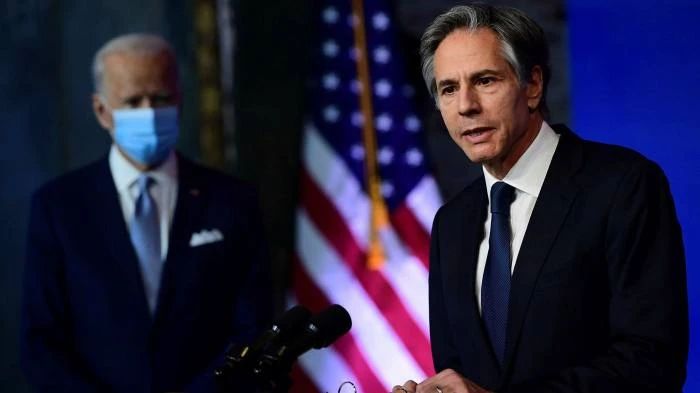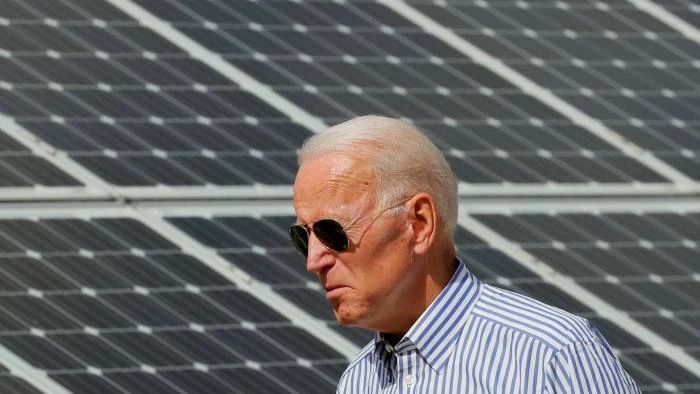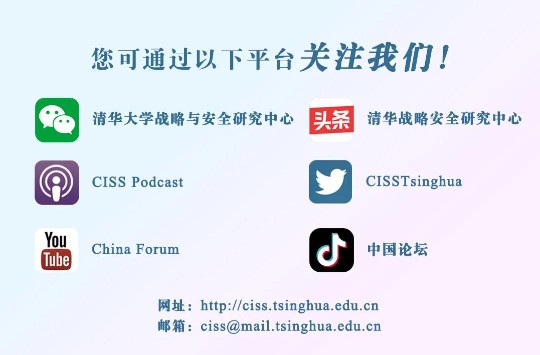导语
最近,美国候任总统拜登公布了他的最新内阁成员名单,对外政策也在逐步浮出水面。其中,对华政策成为媒体关注的一个重点。中国论坛摘取相关讨论和分析中有较有代表性的观点,供读者参考。
一、拜登的外交政策团队初具规模,这仍是一支侧重于“重返亚洲”外交政策团队。美国将寻求改善与盟国的关系,与美国内政紧密相连的气候问题也会成为拜登政府的重要外交议程,但总体来说,其外交政策仍将以印太地区为重点。
It won’t be Obama’s third term, but expect establishment virtues and a climate focus. As the appointment of former Secretary of State John Kerry as “climate czar” makes clear, it would be a great mistake to underestimate the new team’s commitment to addressing this last item. As they see it, climate change is not only a direct threat to international peace and American well-being; it is an issue that links the administration’s foreign and domestic policies and offers an opportunity to split progressive greens away from more isolationist, anticorporate voices on the Democratic left. Linking a global push for an accelerated transition to a net-zero carbon economy (in the relatively distant future) with a domestic infrastructure program focused on green energy can, the new team believes, energize a coalition behind Biden-style centrism at home and abroad.

图片来源:Financial Times
This much of the Biden agenda will be warmly welcomed across Europe. A greener, more multilateral U.S. offers an opportunity to renew the trans-Atlantic alliance that the new team will be quick to embrace. American foreign-policy’s focus, however, will continue to shift toward the Indo-Pacific. This is very much a “pivot to Asia” foreign-policy team that’s likely to pursue a more robust policy in the East than the Obama administration did. The new team’s critique of Trump-era China policy was on means more than ends. Poor relations with allies, particularly in Europe, meant Team Trump couldn’t marshal a united front on economic matters with China. In Team Biden’s view, this was a fatal flaw that undercut the Trump administration’s Indo-Pacific strategy.
(Nov 23, 2020, The Wall Street Journal, Biden’s Foreign-Policy Team Takes Shape)
二、气候变化为拜登和习近平的合作提供了真正的机会。美中都希望在本世纪中叶之前实现净零排放,都渴望影响国际气候外交。两国这一共同目标可能会刺激在清洁能源技术领域的良性竞争。
Kelly Sims Gallagher, who helped organize two major meetings on climate change between former President Barack Obama and Mr. Xi, predicted that collaboration would be difficult but not impossible. She said climate change offered Mr. Biden and Mr. Xi a real opening to work together. Both aspire to take their countries to a net-zero emissions economy by roughly midcentury, noted Dr. Gallagher, now a professor at the Fletcher School at Tufts University, and both are eager to influence international climate diplomacy. Their converging interests, she and other analysts said, could spur healthy competition over clean energy technology and, in turn, drive down prices of renewable power for the rest of the world.
“I think it is a genuinely possible area of cooperation,” Dr. Gallagher said. “The danger is, if the United States dithers and fails to get its house in order and China solidifies its market position in clean energy. Then we, the United States, lose the opportunity to benefit our economy and our workers from the clean energy economy.” Analysts of United States-China relations said Mr. Biden would have to make big moves, fast. He would need to one-up Mr. Xi with a more ambitious net-zero target, which means removing from the atmosphere whatever greenhouse gases that the United States emits. He would also have to restore key environmental protection measures gutted by the Trump administration and bolster the American clean energy industry with some combination of regulations and incentives.
(Nov 24, New York Times, Biden Wants to Be the Climate President. He’ll Need Some Help From Xi Jinping)
三、RCEP的签署给美国施加了压力。太平洋另一端的经贸合作不断发展,给美国维持观望状态带来巨大压力。特朗普在2018年初对中国太阳能电池板征收关税,引发了贸易战,这些关税损害了太阳能的应用,也是气候问题加剧的原因之一。
That puts pressure on the U.S. to join what was once the Trans-Pacific Partnership but that is now called the Regional Comprehensive Economic Partnership: 15 countries in all that comprise $26 trillion in economic output, or 30% of the globe’s gross domestic product. It covers 28% of all world trade. If the U.S. continues to sit on the sidelines while this commerce is transpiring, it will lose. China is joined by Japan, South Korea, Singapore, New Zealand and Australia. Also Indonesia, Malaysia, Myanmar, Philippines, Thailand and Vietnam. If India takes part, the stakes get even bigger. Before President-elect Joe Biden signs on he will assure its fairness. But he knows implicitly that joining the pact will lift the country out of recession and provide a clear sign that America wants to lead — not cower behind its borders while the rest of world moves forward.
Trade wars don’t work. For each action there is an equal-and-opposite reaction. Trump has penalized China with about $550 billion in tariffs that have been met by $185 billion in tariffs on American products. Nearly a third of the U.S. economy is tied to trade while 5% of that is linked to commerce with China. Trump triggered the trade war in January 2018 with tariffs on Chinese solar panels: a 30% tariff, which declines over four years until it goes away — a move intended to save American solar panel makers that comprise just 5% of the global production market. But the industry says that those tariffs have hurt deployment of solar and they have damaged the cause of climate change.
(Nov 22, Forbes, Biden Will Normalize Chinese Relations And Collaborate On Climate And Trade)

图片来源:Financial Times
四、拜登当选总统预计将在对华关系问题上制定更广泛的战略。科技界对拜登最大的期望之一就是,他将扭转或至少减缓美中供应链的脱钩。自从去年美国将华为技术公司列入贸易黑名单以来,这家中国科技巨头的美国供应商们已经损失了数十亿美元的收入。
US-China tech decoupling to slow? One of the greatest hopes the tech world has for Mr Biden is that he will reverse — or at least slow — the decoupling of US and Chinese supply chains. Since the US added Huawei Technologies to a trade blacklist last year, US suppliers to the Chinese tech giant have lost billions of dollars in revenue. This year, the Trump administration’s broader crackdown on Chinese tech companies, including TikTok, has threatened to take an even bigger toll on America’s tech sector, as Silicon Valley fears that worsening tensions would draw retaliation from Beijing and create additional difficulties for their cross-border businesses.
Industry participants and experts say Mr Biden is less likely to push for such a decoupling and will bring a wider range of strategies to his dealings with Beijing. “I think Biden will continue to be tough on China, but he will be a little more strategic in his thinking and he is going to look more strategically at what kind of relationship we want with China,” said Orit Frenkel, a former trade negotiator with the Office of the United States Trade Representative and now executive director at Washington-based advocacy group the American Leadership Initiative. Mr Trump’s approach to China, including increasing tariffs, had caused collateral damage to US companies, Ms Frenkel added.
(Nov 16, 2020, Financial Times, Tech after Trump: what a Biden win will mean for Asia)
五、拜登的对华政策将更加理性和务实。尽管两国之间仍将存在激烈的竞争,但总体氛围将得到改善。新冠大流行在美国造成了沉重的经济损失,拜登被迫寻求结构性地调整对华政策,以便能专注于疫情后的复苏。
The buzzword is “strategic competition.” But it is well understood that the Trump administration’s containment policy, marked by a three-pronged strategy of the trade war, technological blockade, and ideological attacks, failed to achieve significant results.
The heart of the matter is that it is unrealistic for the US to launch an economic war on China or to start any comprehensive military confrontation against China, considering that the power gap between the US and China is rapidly narrowing. Meanwhile, the pandemic has dealt heavy economic losses in the US. A new round of large-scale suppressive policies against China in the short term is simply inconceivable. Biden is coming under compulsion to seek a structural adjustment of his China policy in order to concentrate on the post-pandemic recovery first.
China is the only major economy that will enjoy positive growth in the period ahead. And China is emerging as the engine of global growth. Yet continuing trade friction between the two countries means that the US will not benefit from this expansion as it did from China’s huge fiscal and monetary pump-priming after the great financial crisis of 2007-08. All the same, paradoxically, with Beijing pursuing incremental liberalization of its financial market, US banks are already starting to take controlling stakes in existing partnerships in China. Again, China offers hard-pressed pension funds in the US and other developed countries real incomes from which to pay retirement obligations. Clearly, the Biden administration will take note that aggressive US-China “strategic competition” will come at a high cost.
In sum, a certain improvement in US-China bilateral relations can be expected in 2021. Biden’s China policy will be more rational and pragmatic. Although there will still be fierce competition between the two countries – and even more fierce competition in the high-tech fields – the overall atmosphere of the relationship will improve. To be sure, Biden intends to look at ways to work more effectively with the US’ allies and partners on the entire agenda – market access, for example, intellectual property, China’s industrial policy, etc – as there is a lot of crossover today. However, Biden’s immediate priority will be to stabilize the US-China relationship. We can expect Biden to take a cooperative approach on health issues in particular. This means that while a competitive edge will always be there, the main thrust will be on putting the relationship on a stable footing.
(Nov 22, 2020, Asia Times, Biden’s view on China coming into focus)
编辑:中国论坛 董思、武一琪

